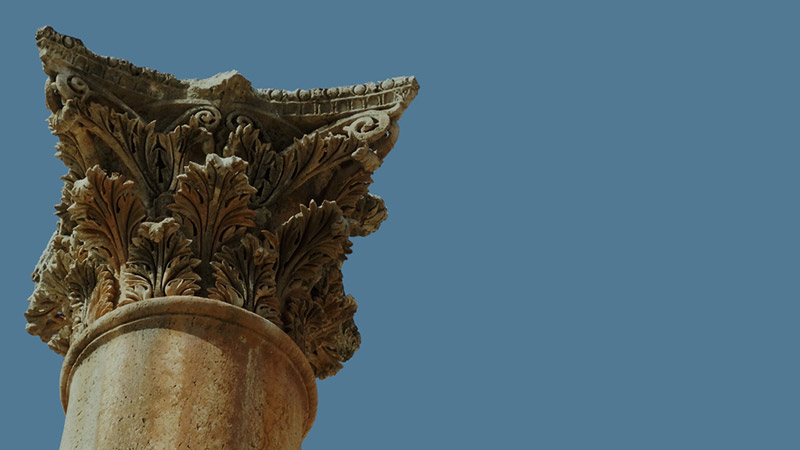More Results
Showing 12 of 317
Encyclopedia

Bathroom
The luxury of the mansions on the Western Hill is highlighted by this mosaic floored bathroom. On the left, a bathtub, partially ruined, has been restored. Many of the mansions in this area had several beautiful baths as well as mikvoth for ritual...
MORE
Beelzebub
Who is Beelzebub?Baal-Zebul was the god of the Philistines; the name means "Exalted Baal" or "Prince Baal."In the Greek language of the New Testament, the name becomes Beelzebub. Jesus used the name Beelzebub for Satan, the pri...
MORE
Beth Shemesh
Beth Shemesh, meaning "house of the sun," ' was a small town on the border between Judah and the Philistines. This is the place where the ark of the covenant came when it was returned by the Philistines (1 Sam. 6).Beth Shemesh stands in...
MORE
Bethlehem - Jesus' Birthplace
Today the town of Bethlehem is much larger than it was in Jesus' day. But despite its small size in biblical times, Bethlehem was the location of significant historical events. Discovering its history helps us appreciate why the town was the perf...
MORE
Biblical Covenants
Biblical CovenantsSimilar to a business agreement or contract made today, in the ancient Near East, there was a special covenant form in which a greater party (usually a king), established a relationship with a lesser party (a vassal). The greater...
MORE
Burial Practices
Burial PracticesThe BodyAccording to Jewish interpretation of the Old Testament Law, burial had to occur within 24 hours (Deut. 21:23). This was partly due to the climate in Israel, and partly because the body was considered to be ceremonially unc...
MORE
Caesarea
Herod seized an opportunity to control world trade by building a seaport on Israel's coast, where the sea routes and the predominant land route intersected. Caesarea was a glorious city, covered with marble, and symbolizing the vast wealth that He...
MORE
Caesarea Philippi
Located in the northeastern part of Israel at the foot of Mount Hermon, lay Caesarea Philippi, a pagan city built by Herod Philip, a son of Herod the Great.For many years, people in this area had worshiped false gods, including Baal (Josh. 11:16-1...
MORE
Caesarea: Why was Caesarea built?
Herod built the Seaport at Caesarea for a number of different reasons.- He needed a port on the Mediterranean because existing ones were outside his kingdom or hostile to him.- He recognized Caesarea's strategic location along the Via Maris, the t...
MORE
Cistern of Masada
Cisterns Herod built to provide water during times of siege and to fill his luxurious swimming pools and supply his bathing complexes. The amount of water needed was staggering. There were several swimming pools on top of the desert mountain, wher...
MOREGlossary

Bronze Sea Definition
Bronze basin at the entrance to the tabernacle used for ceremonial purification before sacrifices were made. It also symbolized God's forgiveness after sacrifices were made. Solomon commissioned a large basin for the temple at Jerusalem. It was ov...
MORE
Cistern Definition
Because water in Israel is hard to come by, most ancient cities, towns, and even households used cisterns to catch and store rain runoff from rooftops, courtyards, and even streets.Cisterns were dug by hand out of solid rock and were plastered so ...
MORE

















